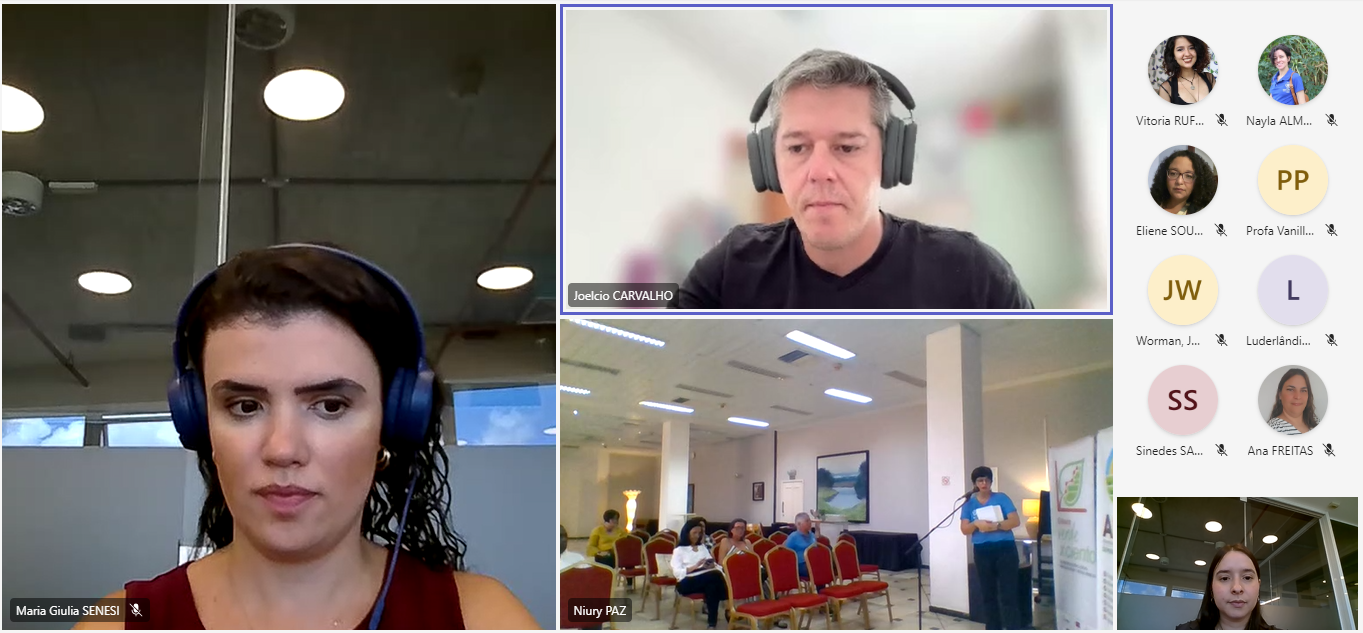
On Wednesday, April 24th, representatives of the Programme and Project teams of the WFP Centre of Excellence against Hunger in Brazil took part in a virtual workshop organized by the WFP in Cuba, with the aim of deepening interaction between the countries, updating demands, exchanging knowledge and sharing experiences of the work carried out by the Centre of Excellence. The training follows on a series of technical meetings held in September 2023 between the countries. Partners from the Cuban national and local government were also present.
Throughout the morning, topics such as school feeding, family farming and nutrition were discussed. The Programme Unit addressed central aspects of the structuring of the National School Feeding Programme (PNAE), its guidelines and legal frameworks, its institutional design and aspects of family farming purchases. The team explained that, in practice, the successful execution of the school feeding programme is due to a multisectoral aspect and a combination of individual, organisational and political capacities.
“Although the main objective of school meals is to guarantee food security for students, the PNAE also guarantees other benefits such as rural development and nutritional quality through the purchase of food from family farms, for example. This is due to its multi-sectoral nature, which demonstrates the enormous potential of a well-designed and implemented programme,” said Maria Giulia Senesi and Ana Clara Cathalat, who are part of the programme team.
In the afternoon, the representative of the Centre of Excellence’s Projects Unit, Joélcio Carvalho, brought to the debate topics such as quick impact solutions that guarantee the sustainability of relationship models between producers and schools, the use of low-cost technologies for food irrigation, the implementation of school gardens for the production of fresh food and the use of popular education to incorporate a nutritional approach into school feeding programmes. He also highlighted social technologies for collecting water for consumption and production, such as Brazil’s cistern programme.
“Today’s activity inaugurates a new front for the WFP Centre of Excellence against Hunger, seeking to promote discussions and present technologies that have been validated and developed for decades and by millions of people in Brazil, together with other WFP offices, to collaborate in discussions on school feeding, local purchases and food production using sustainable production models,” said Joélcio.




